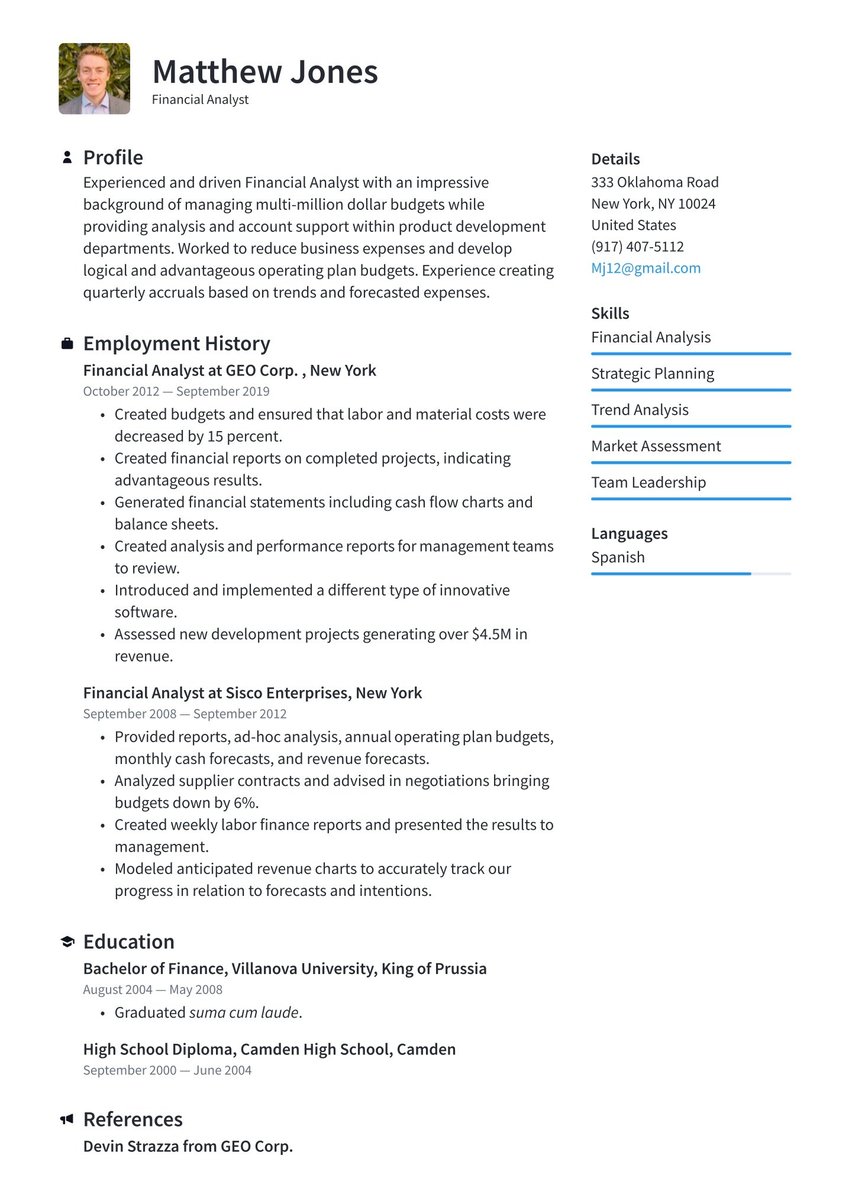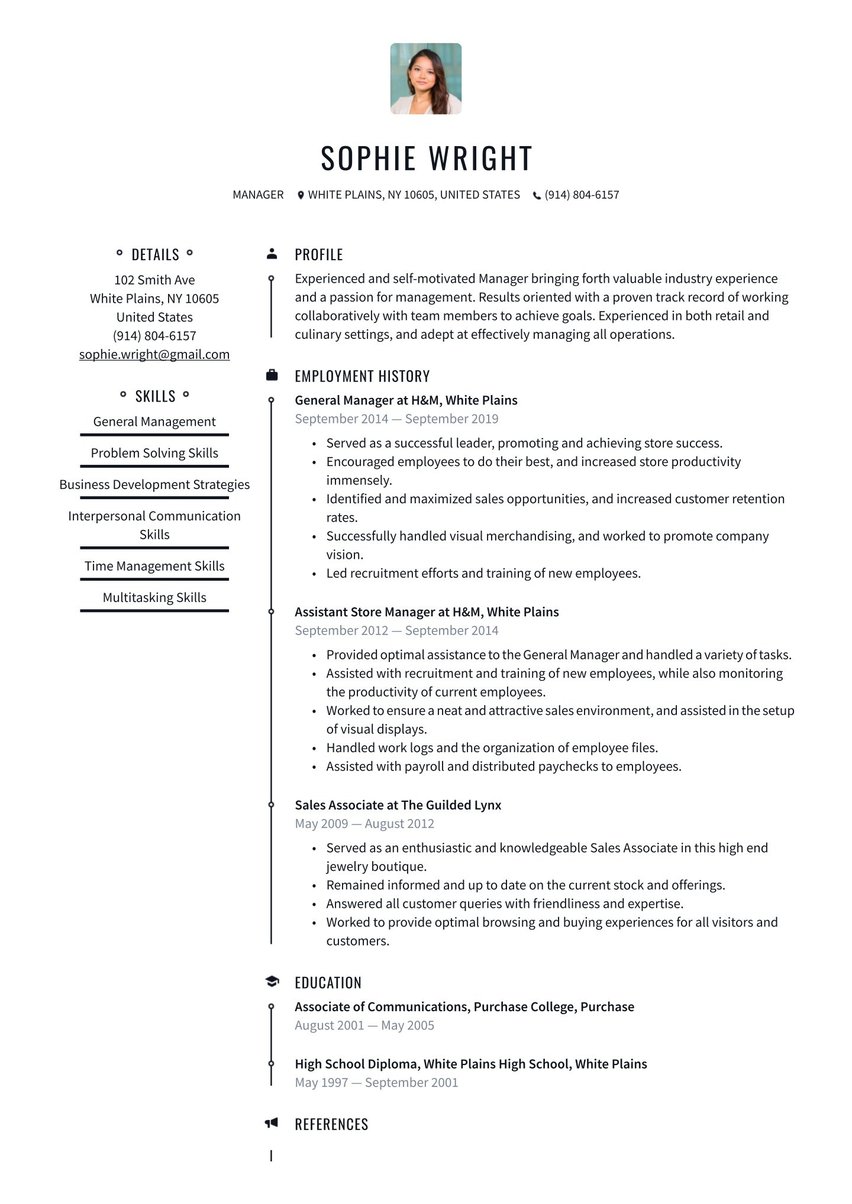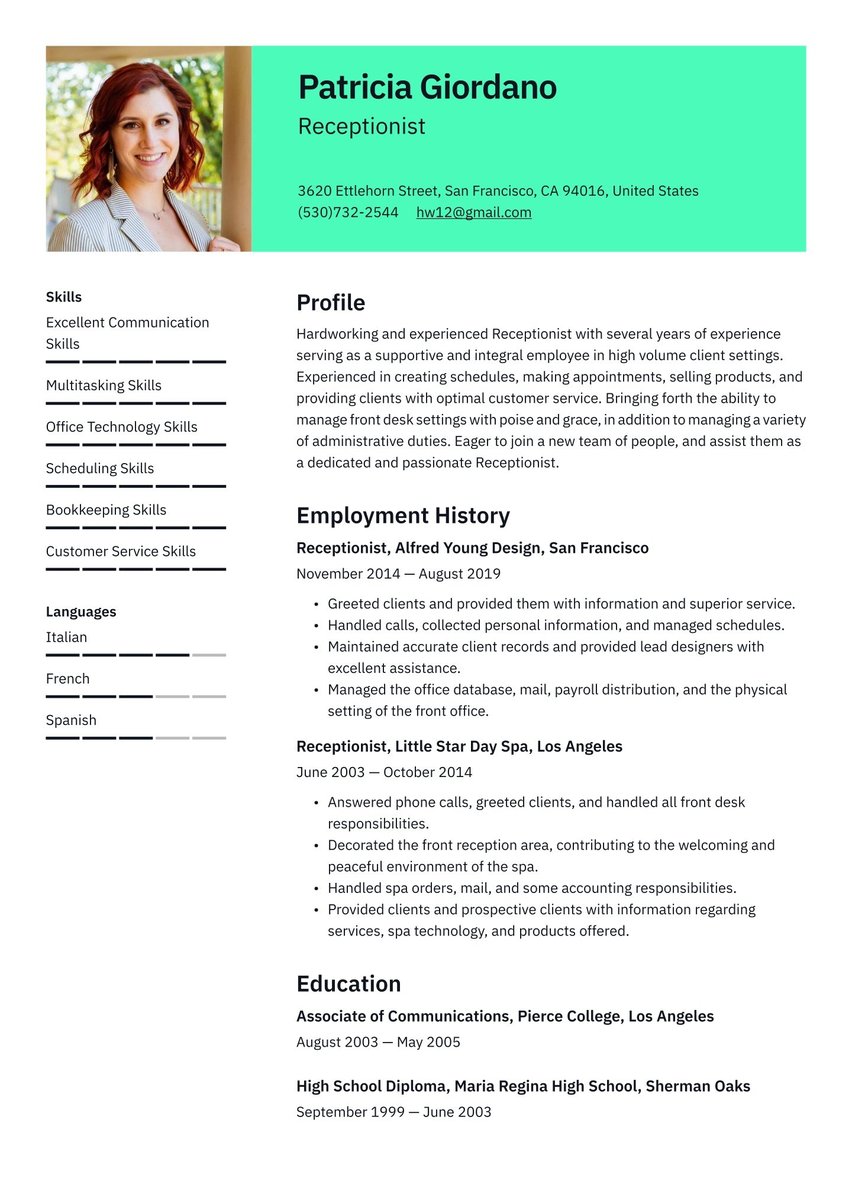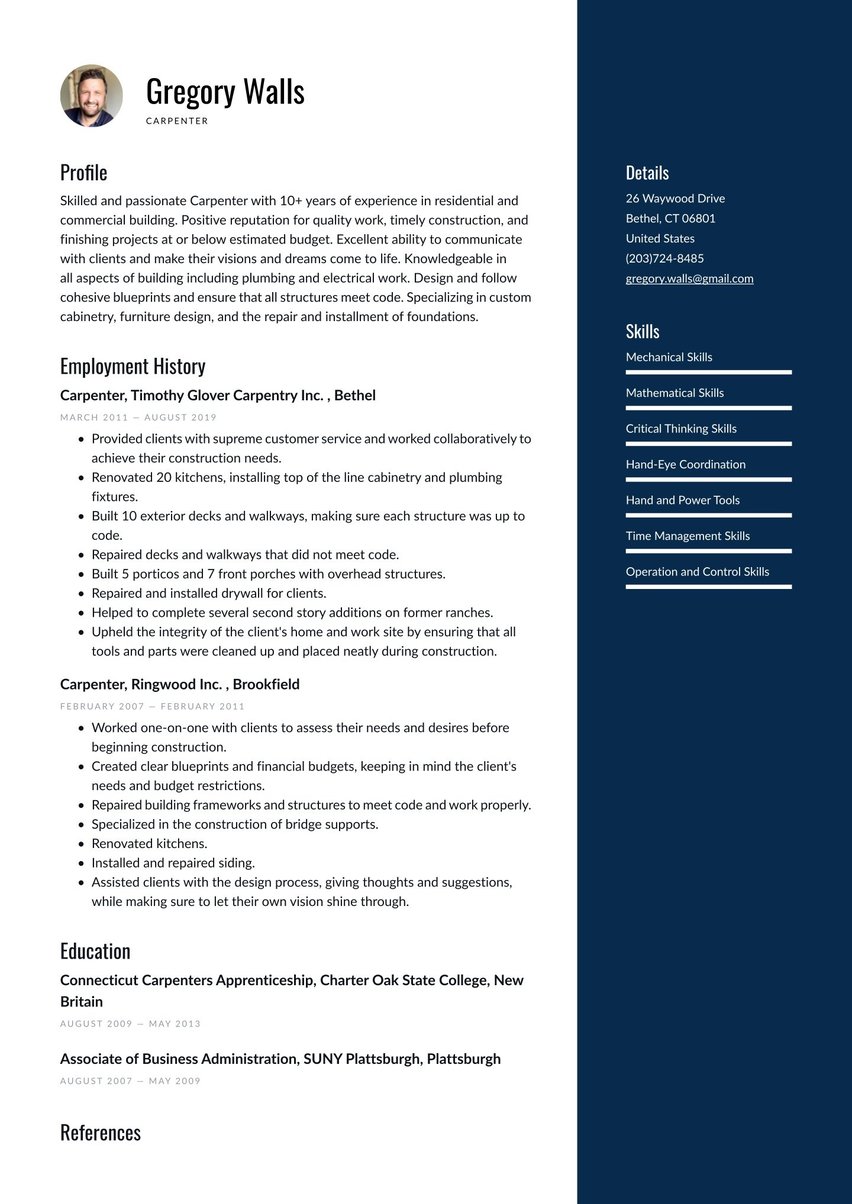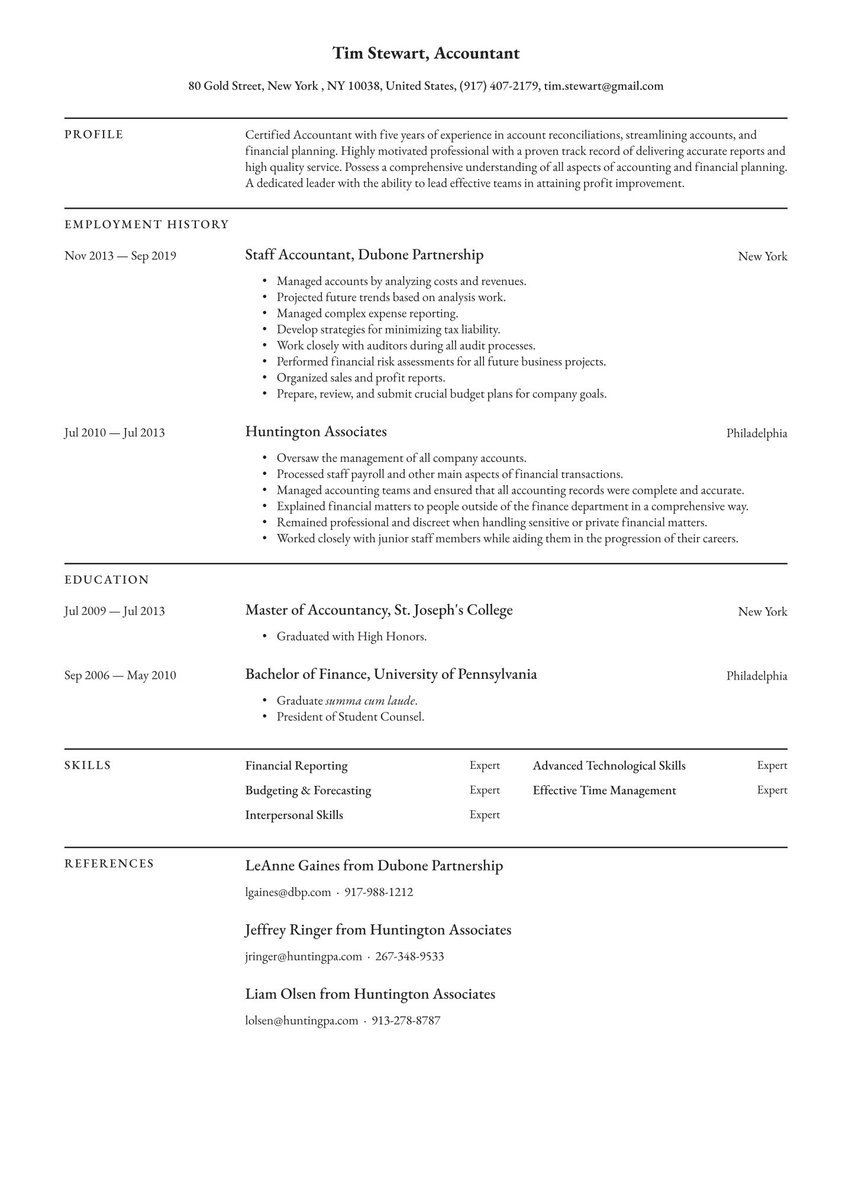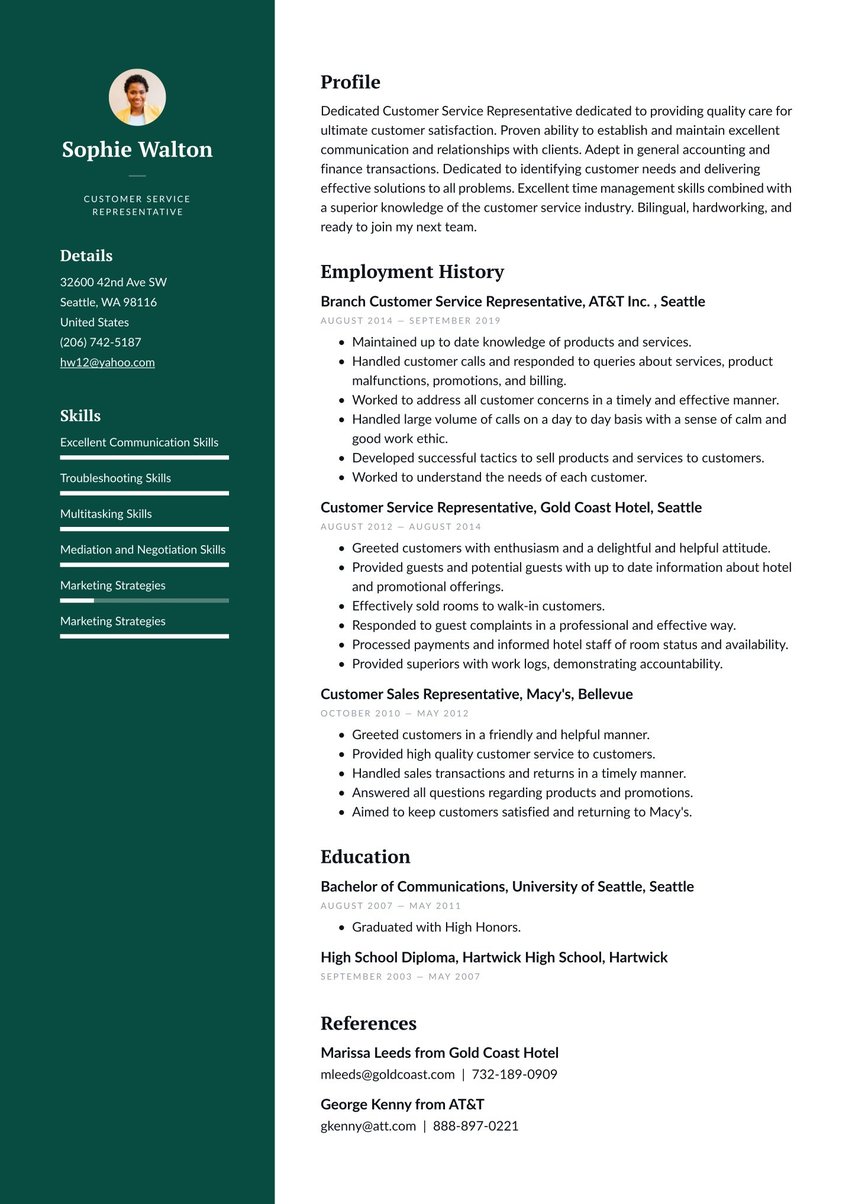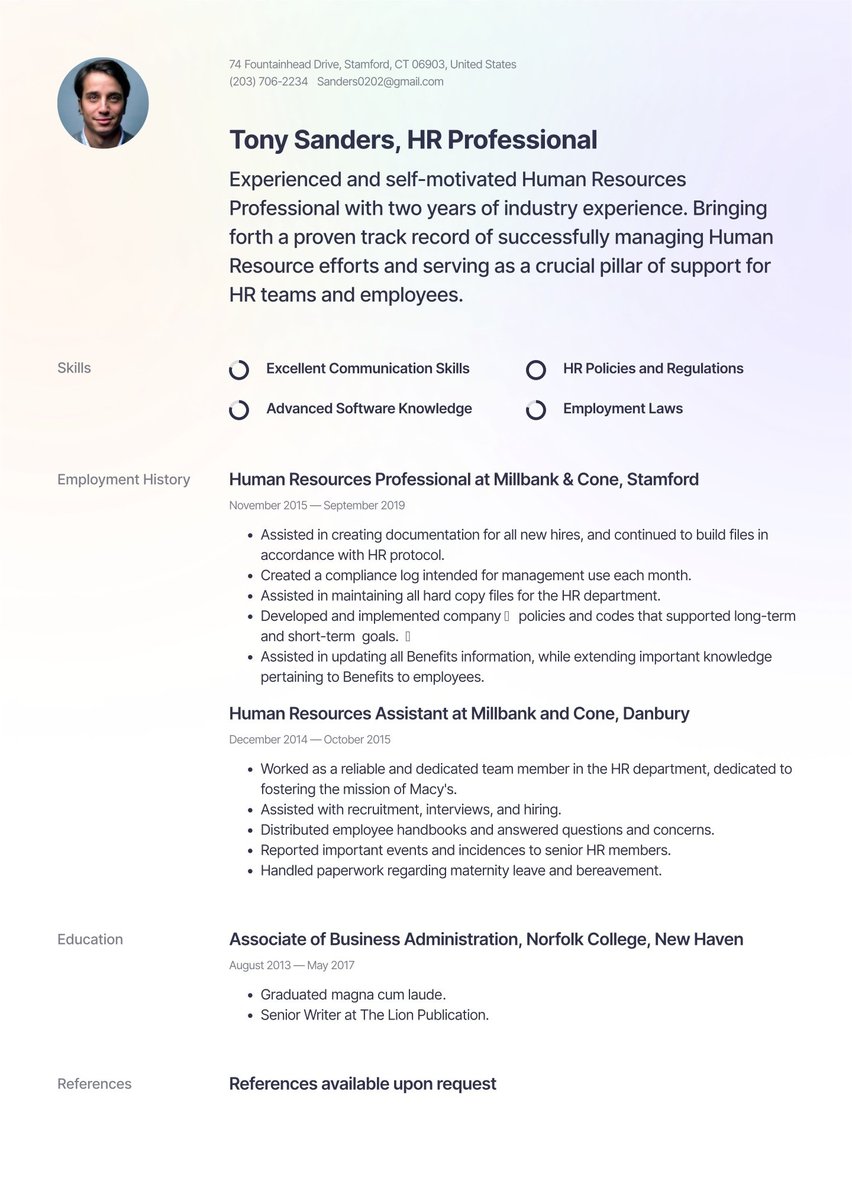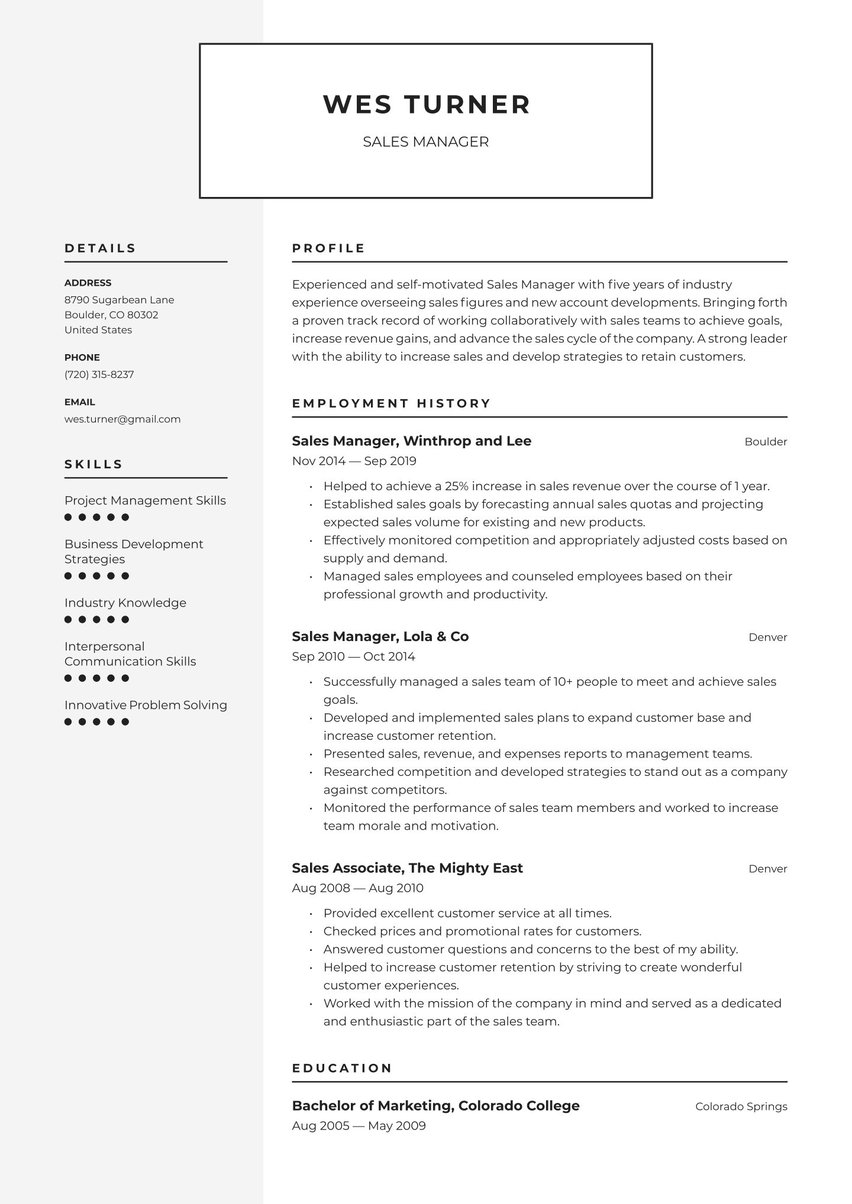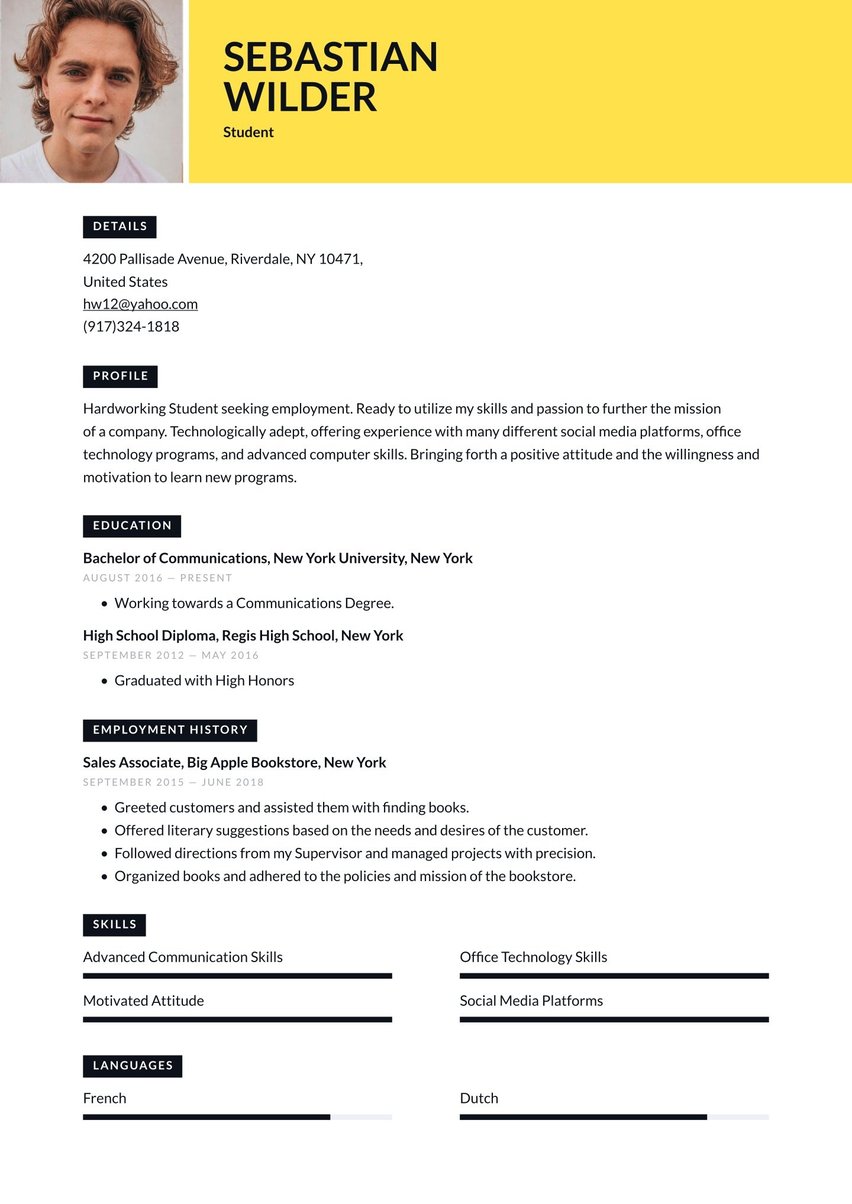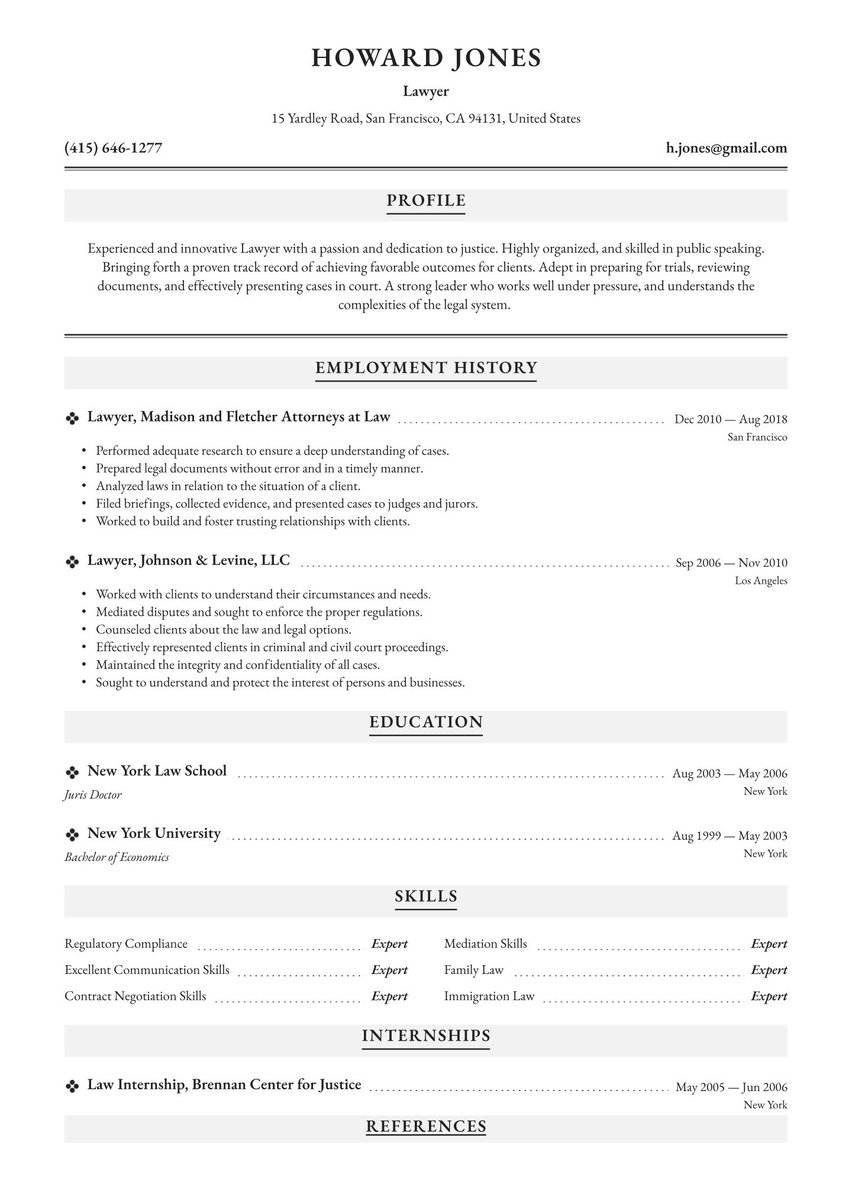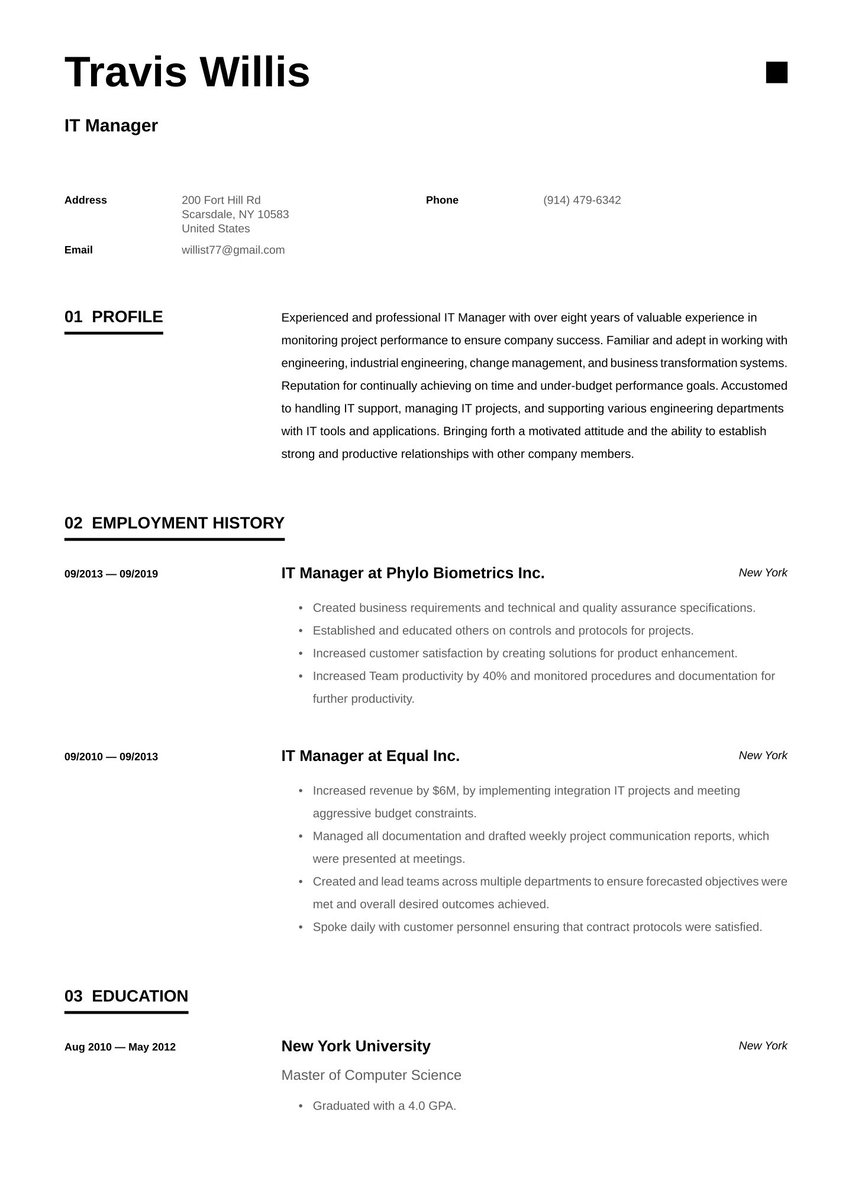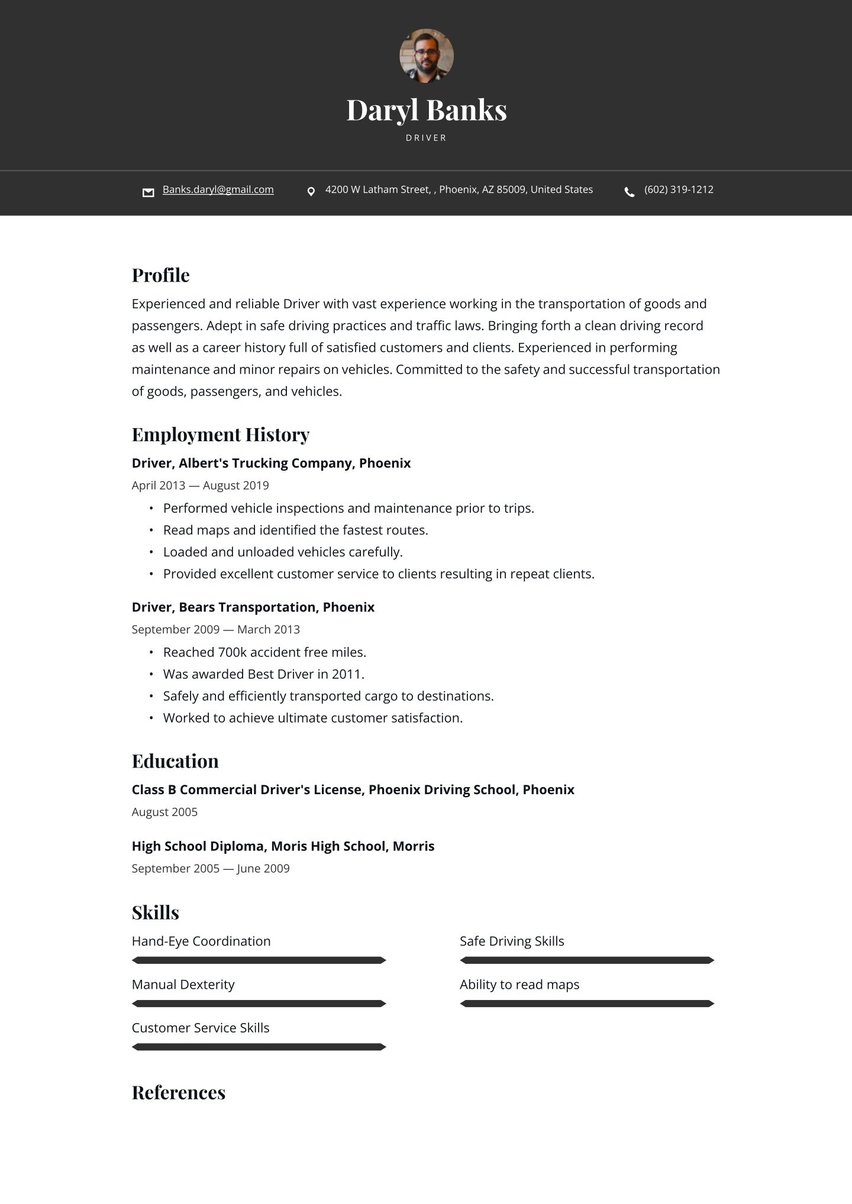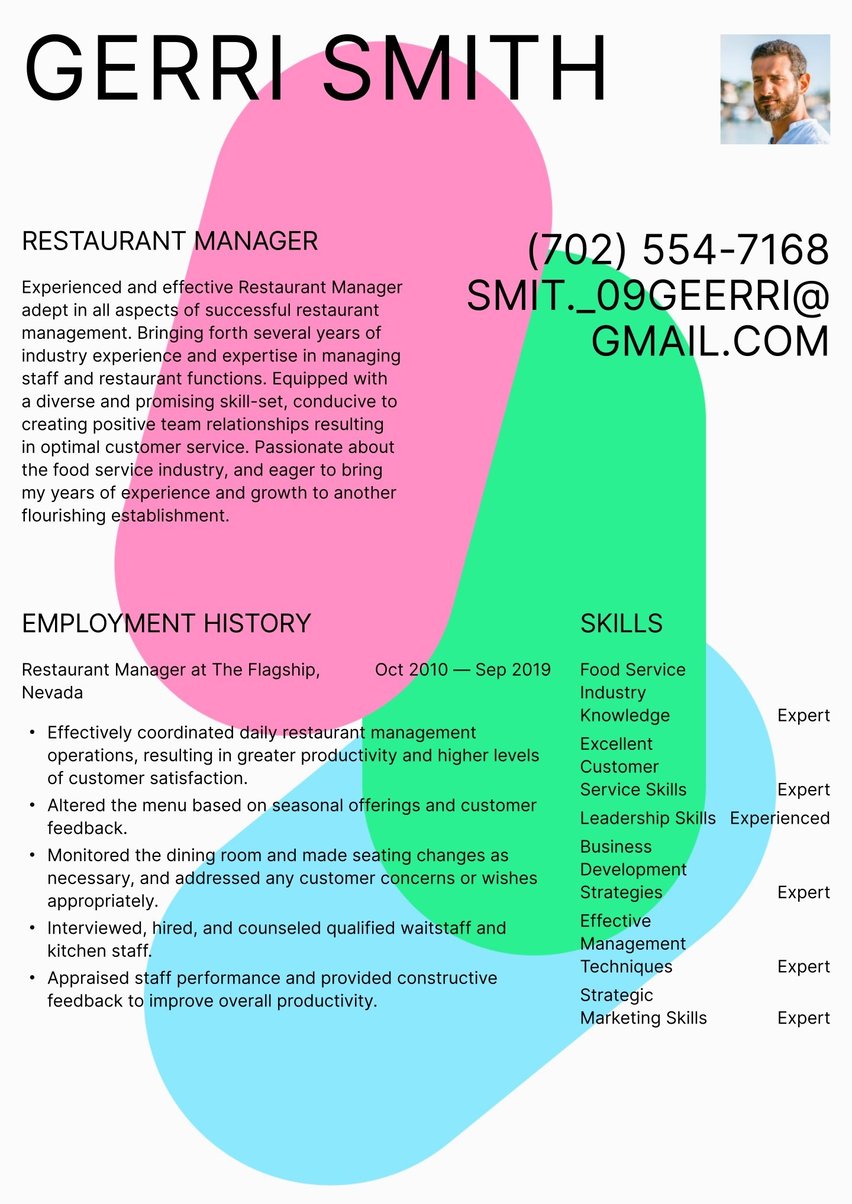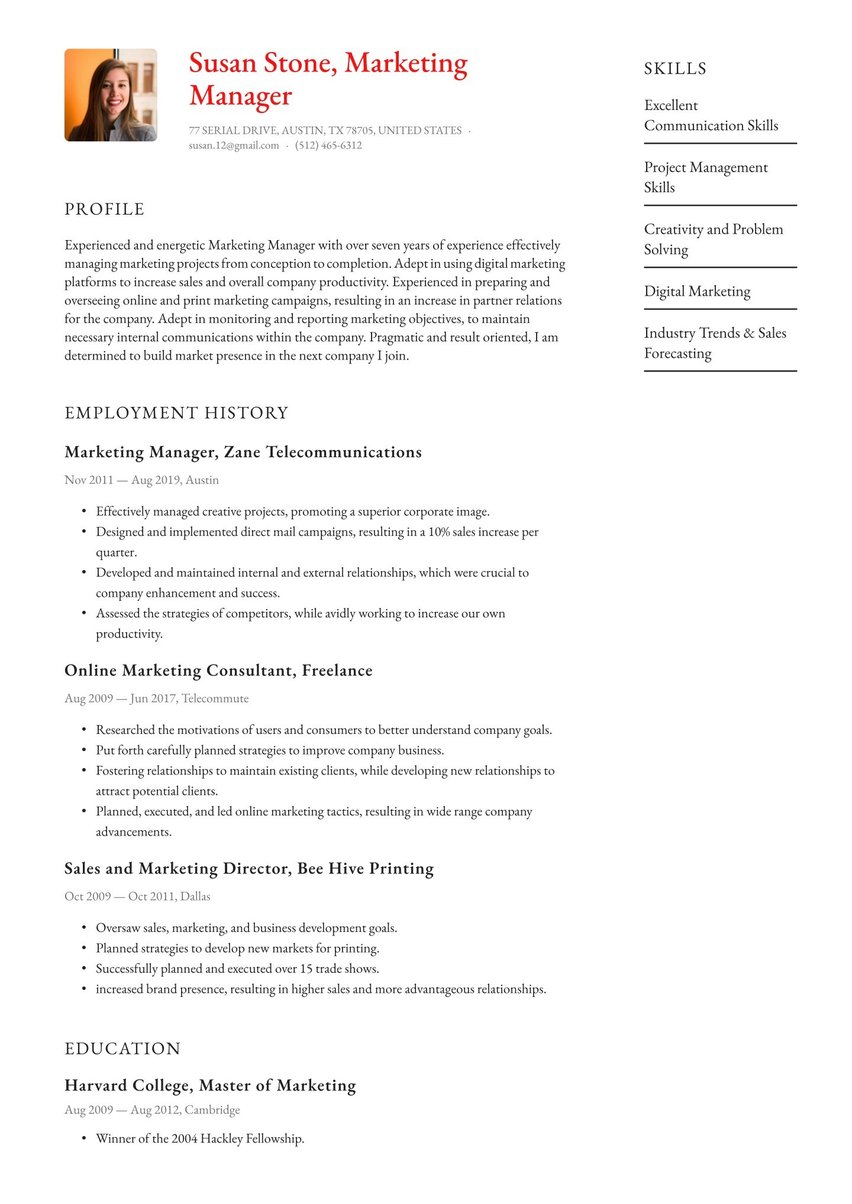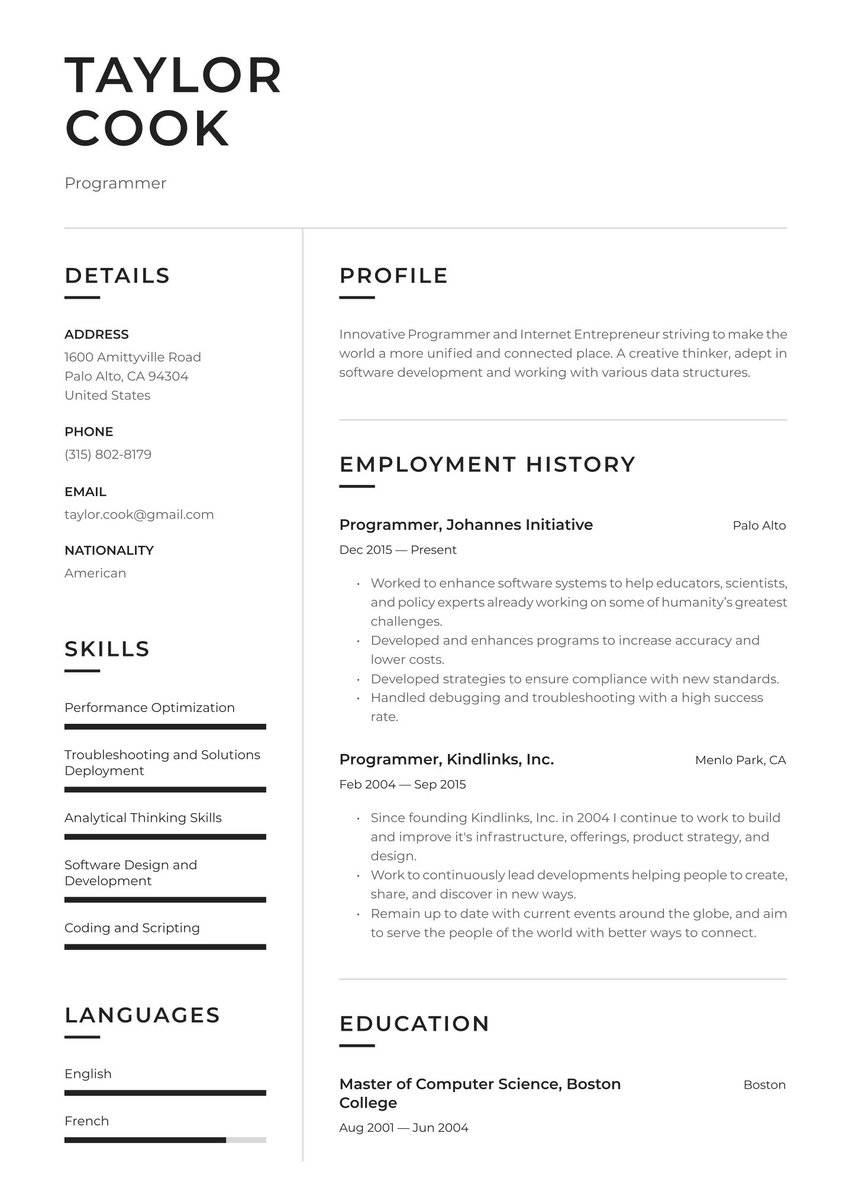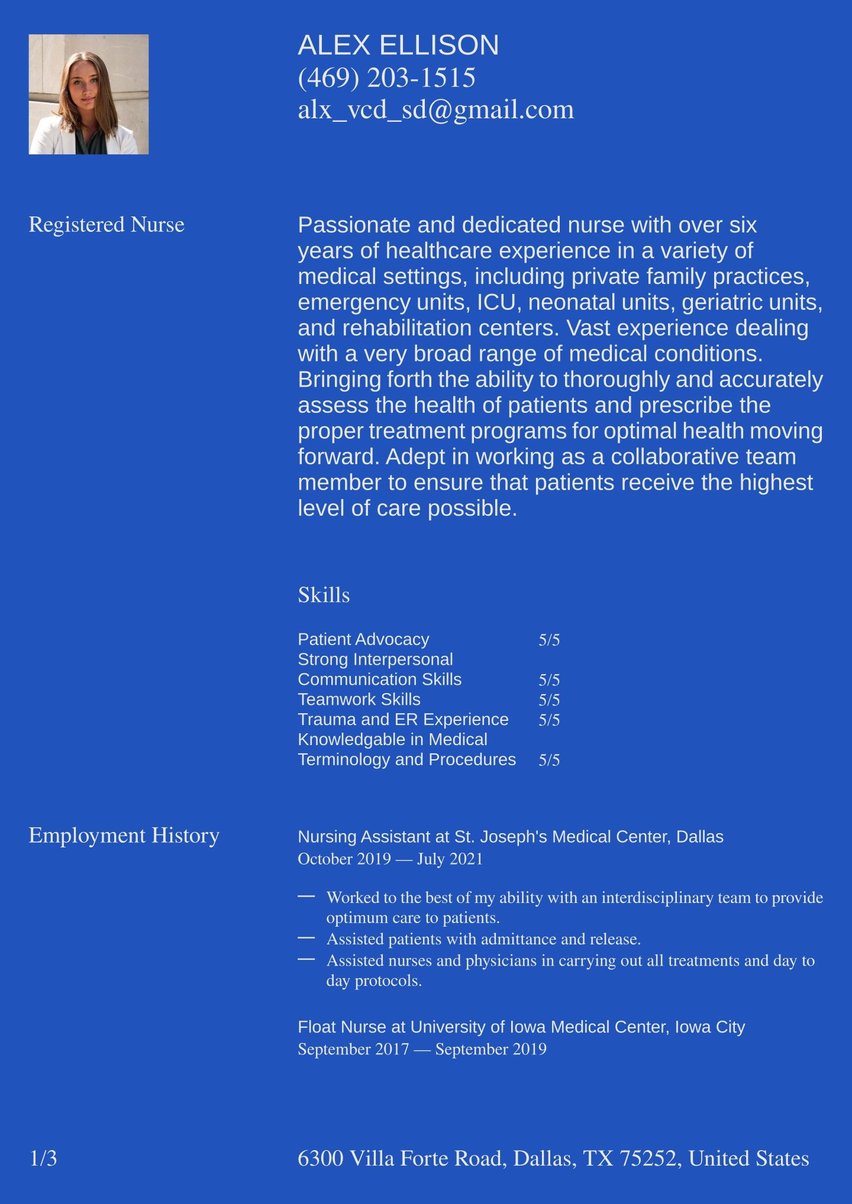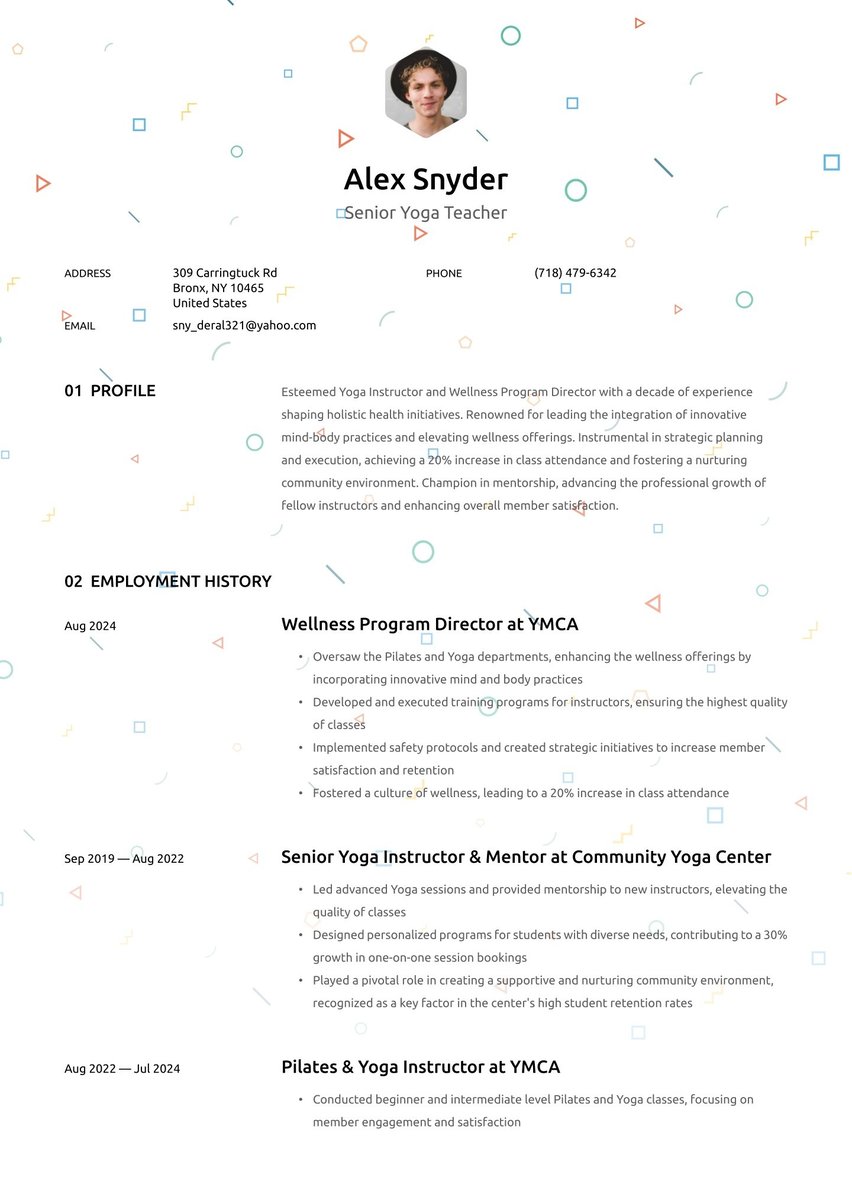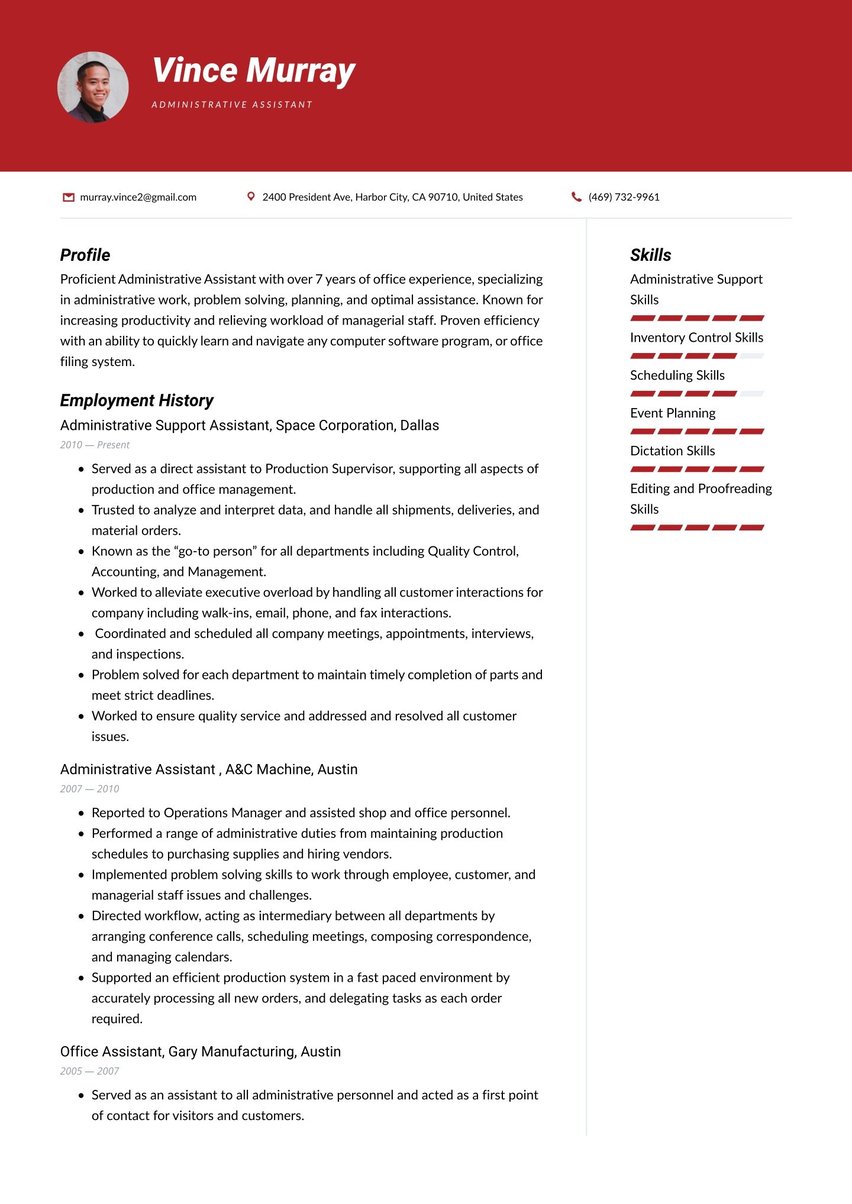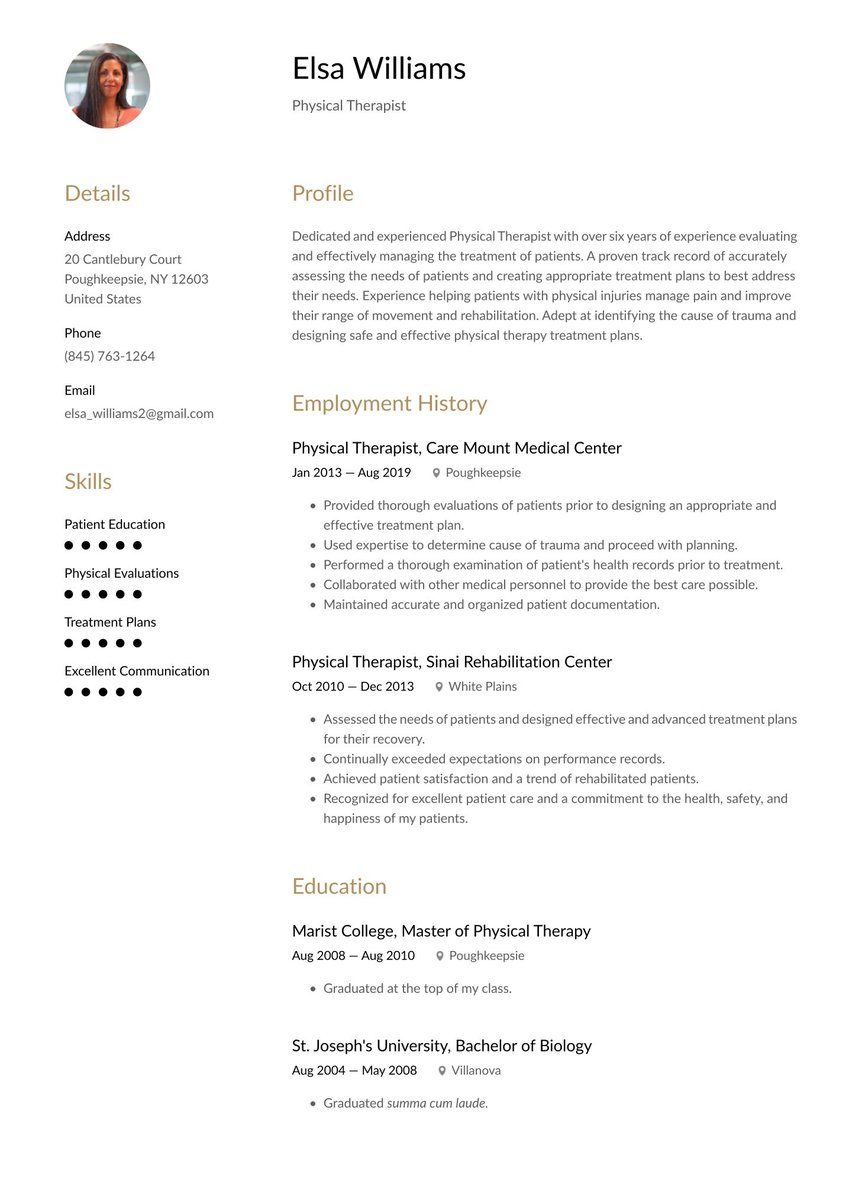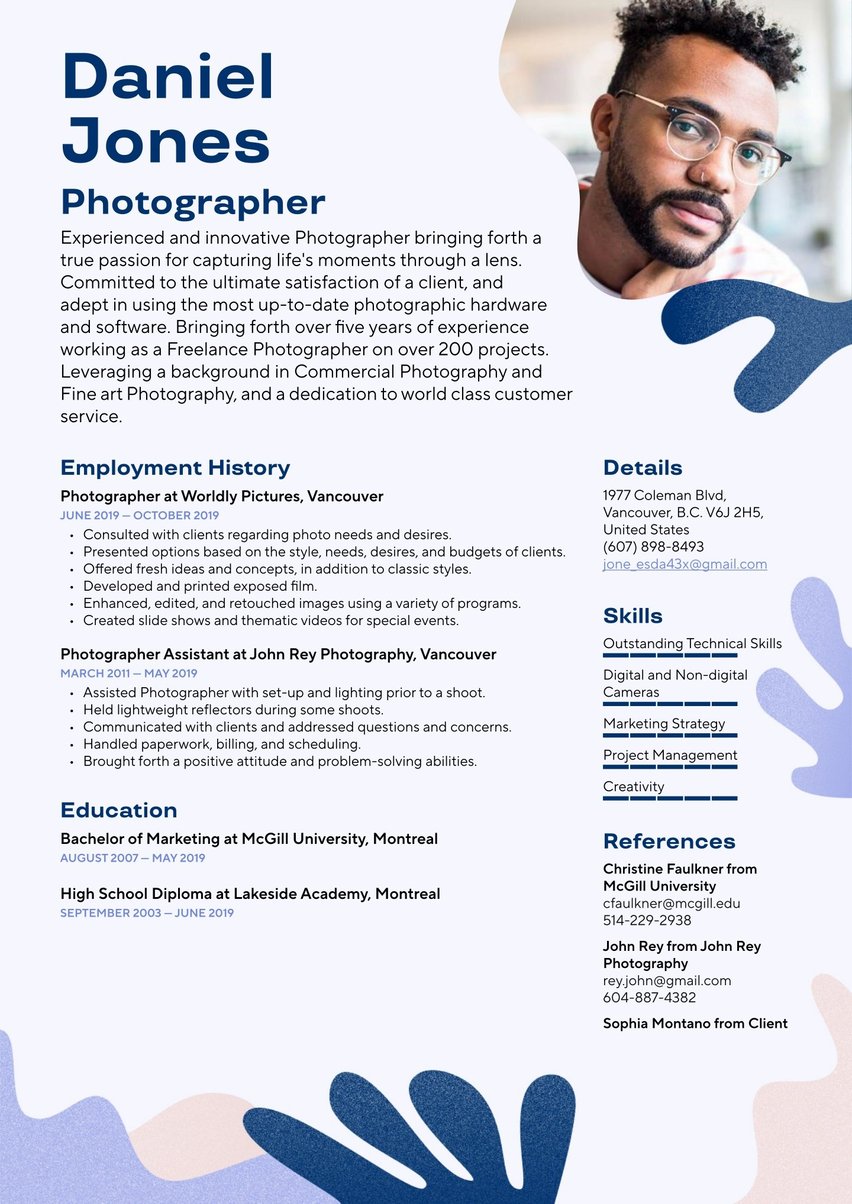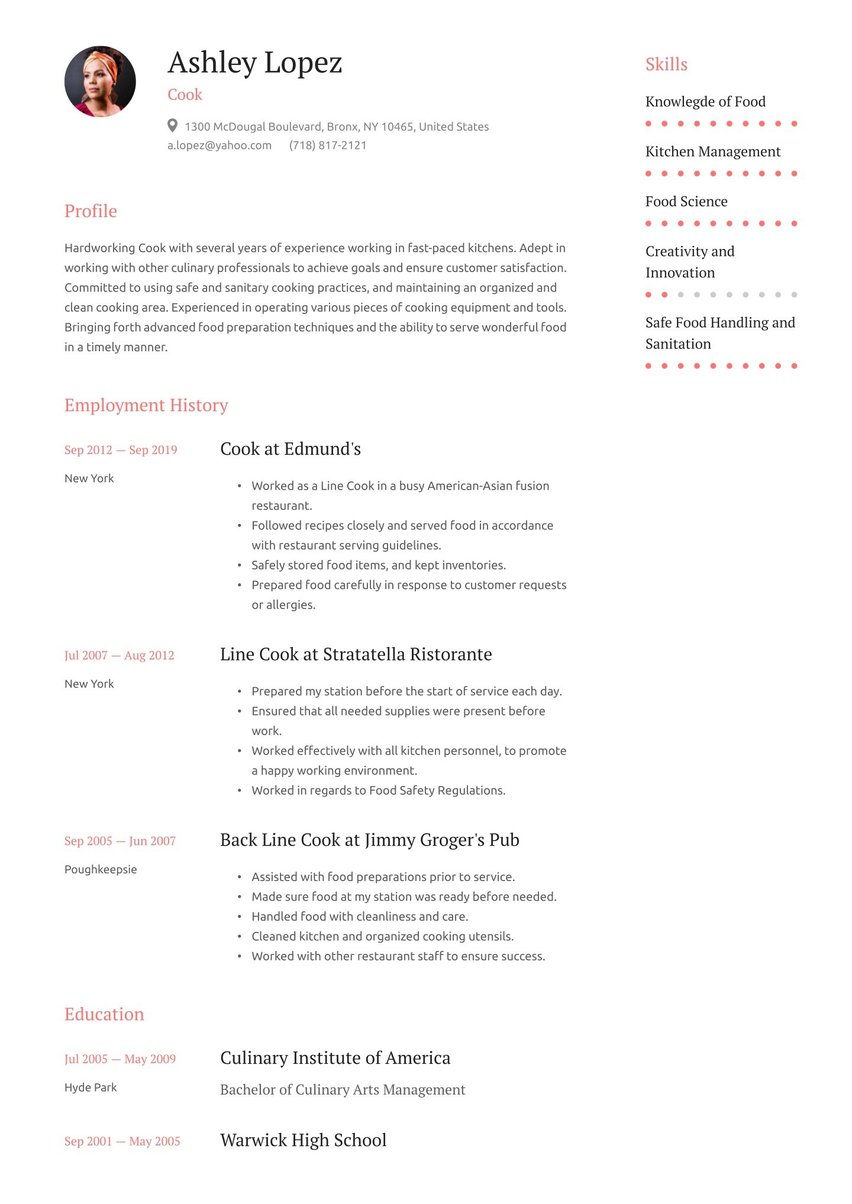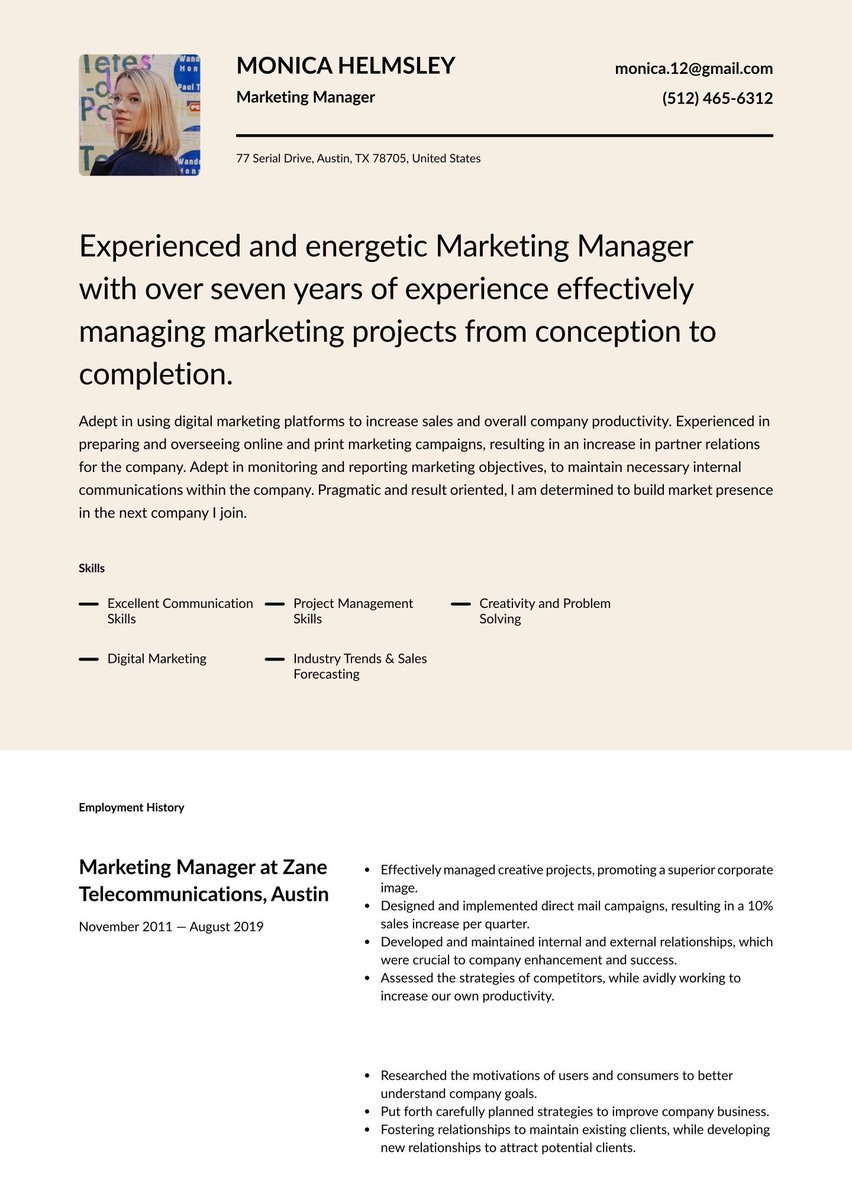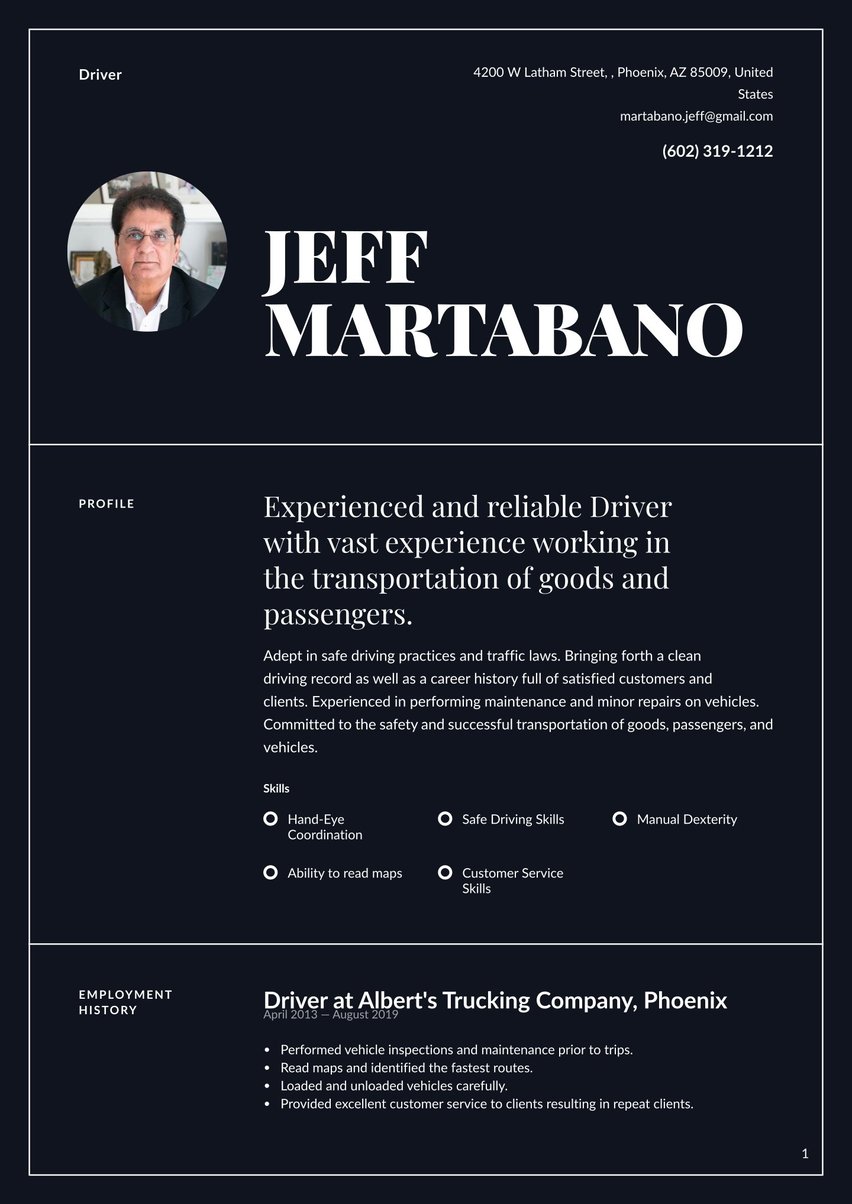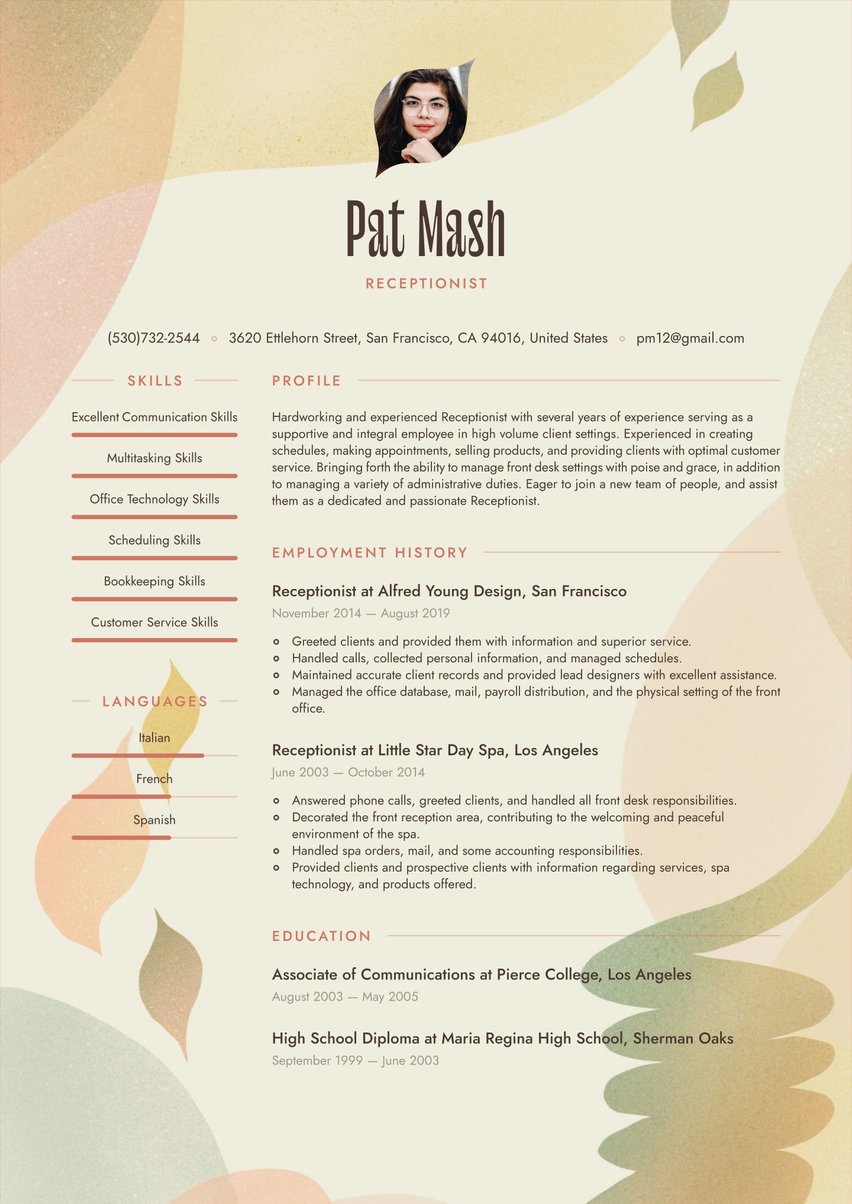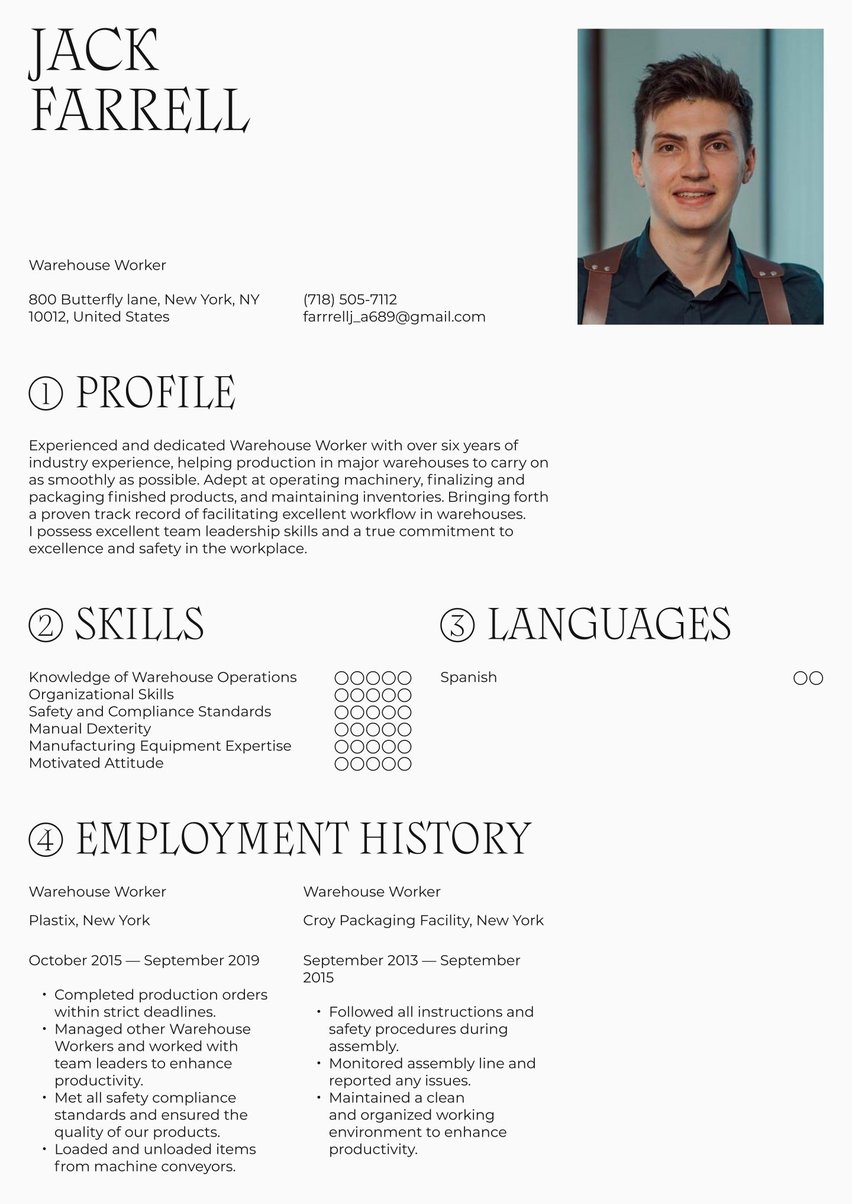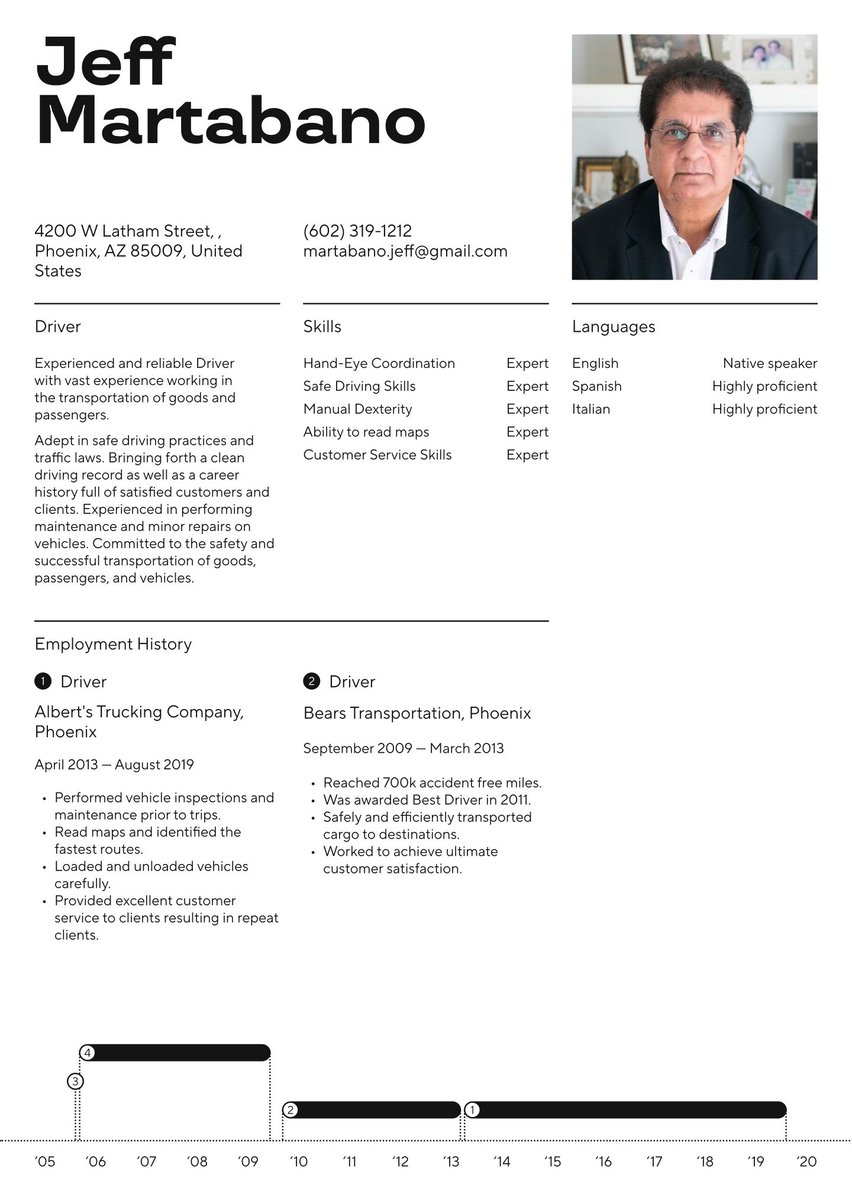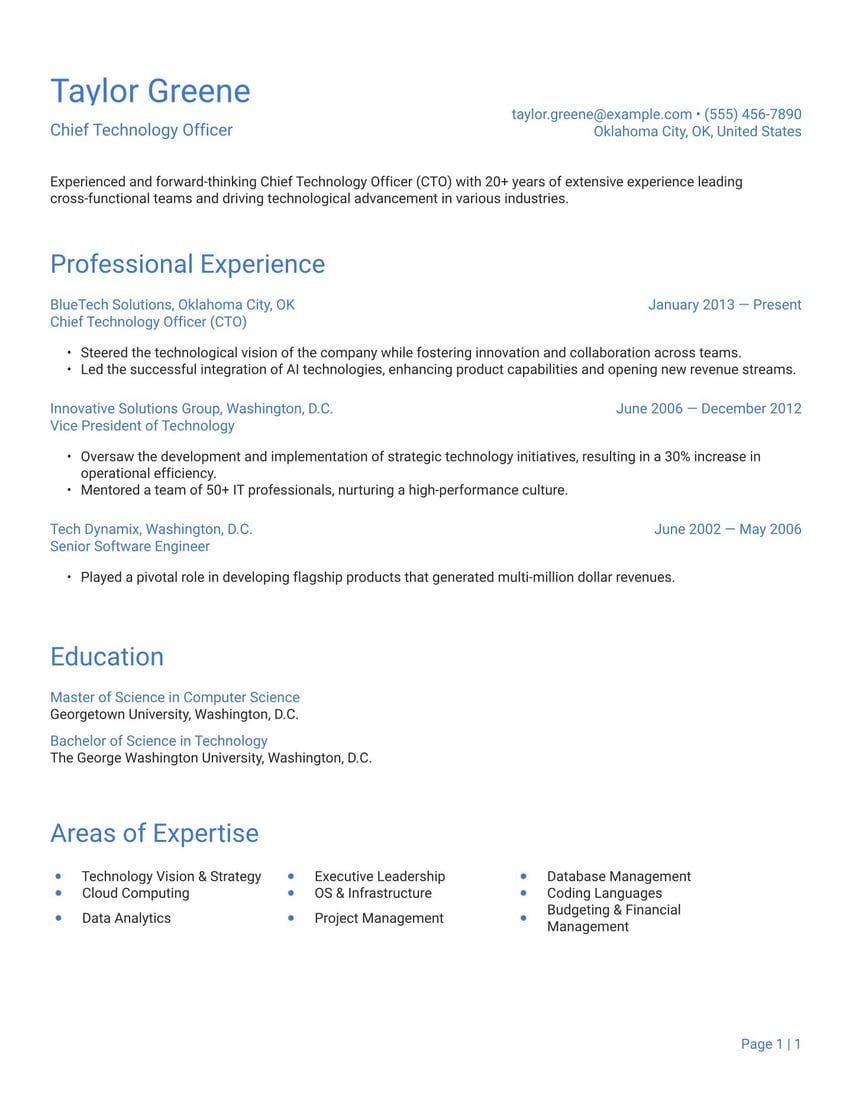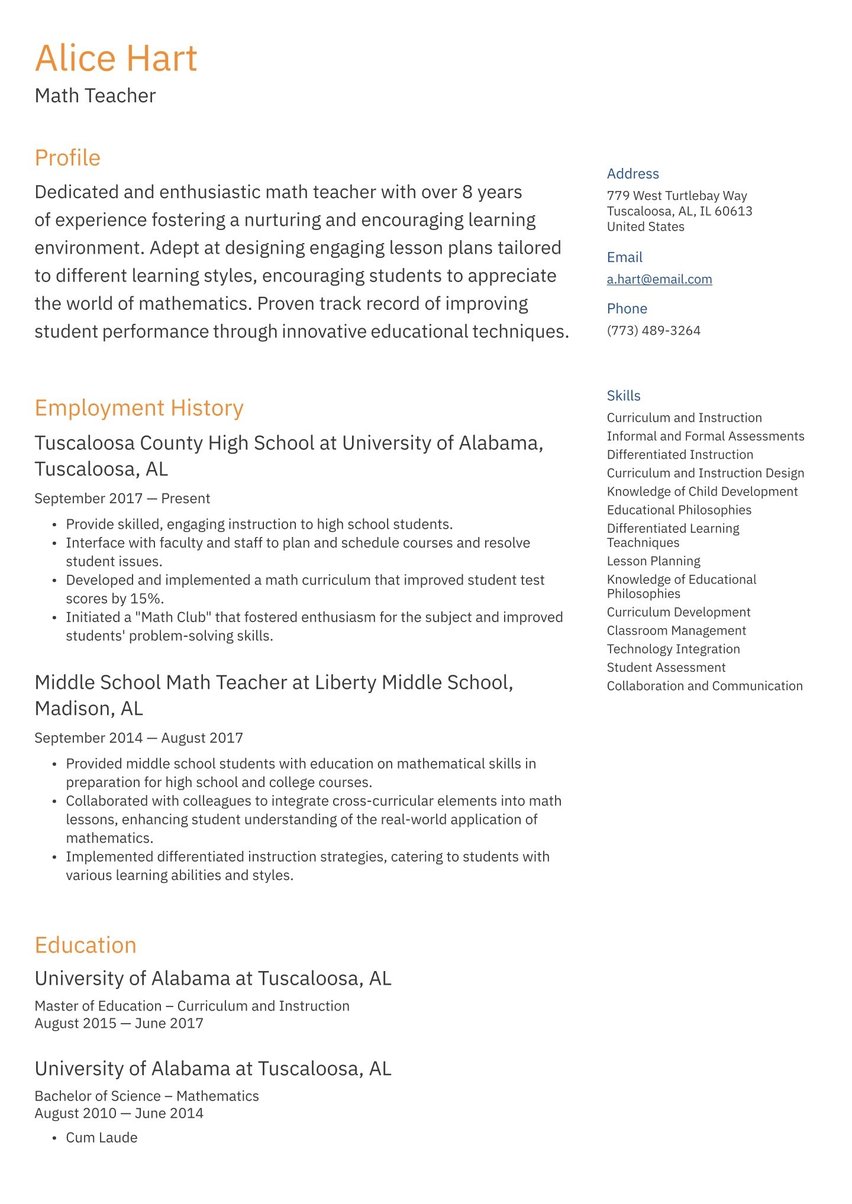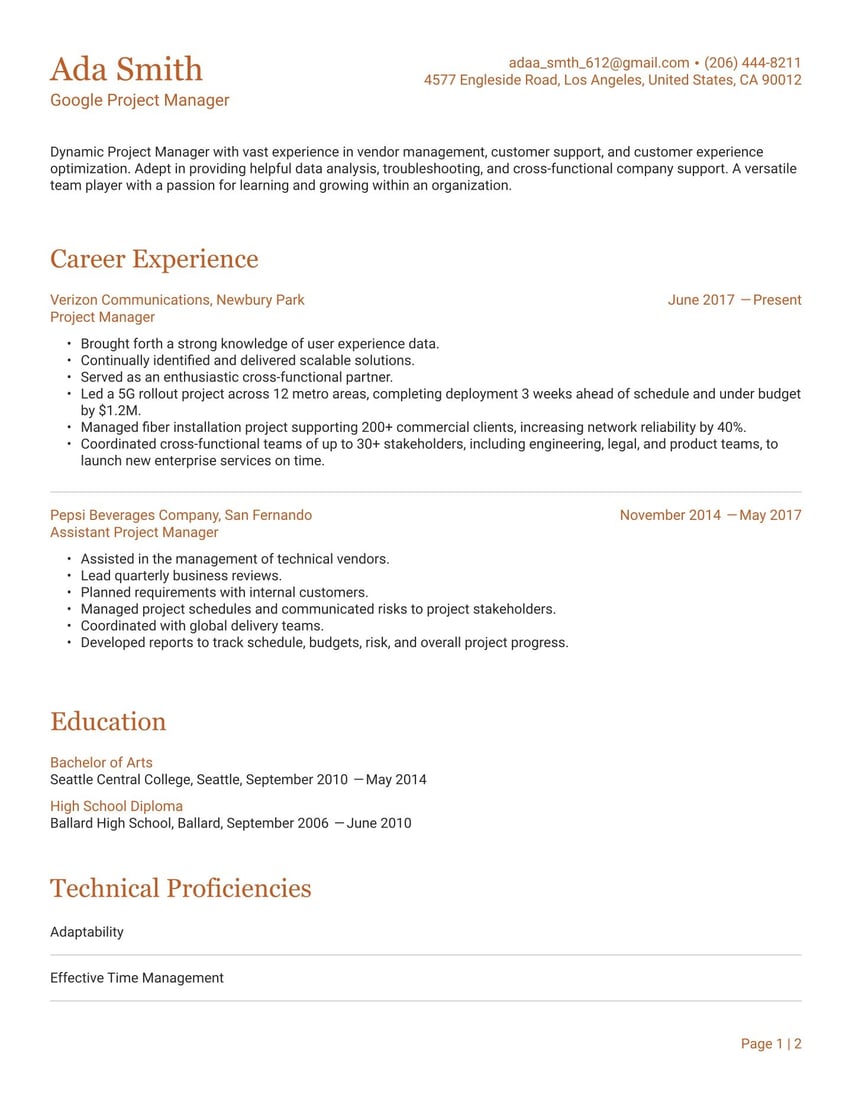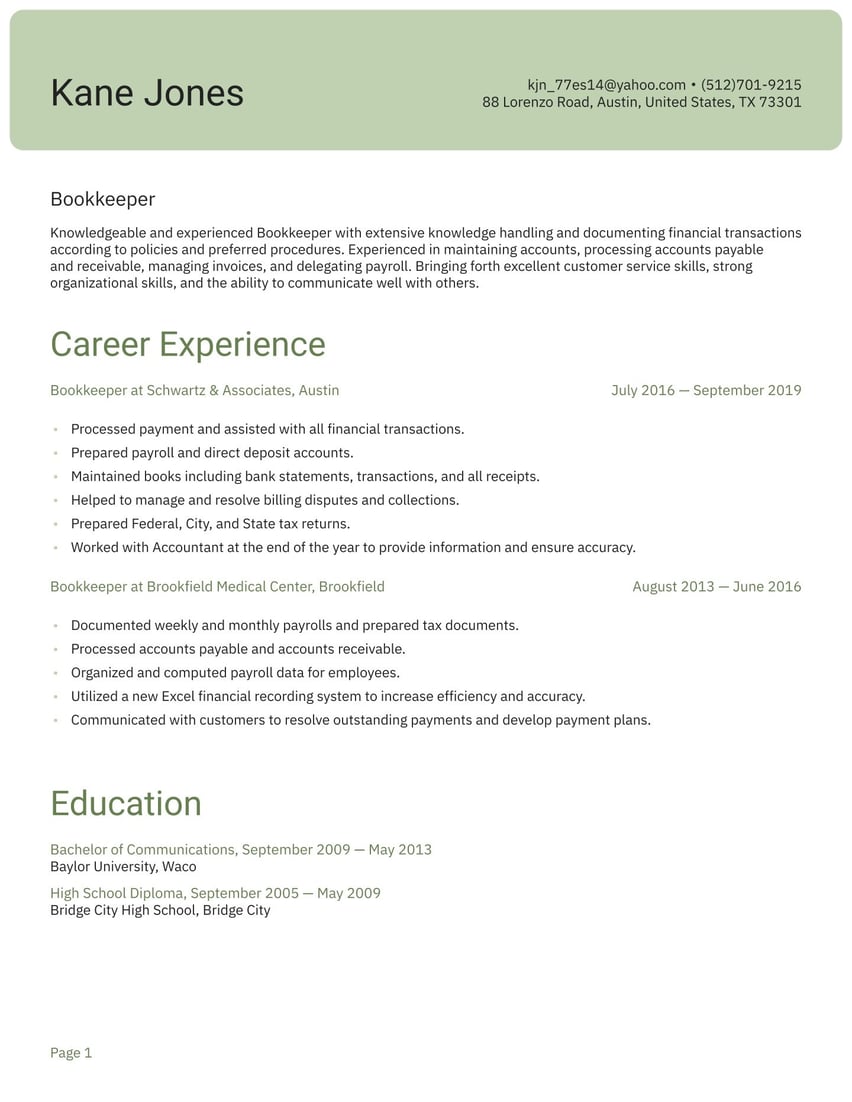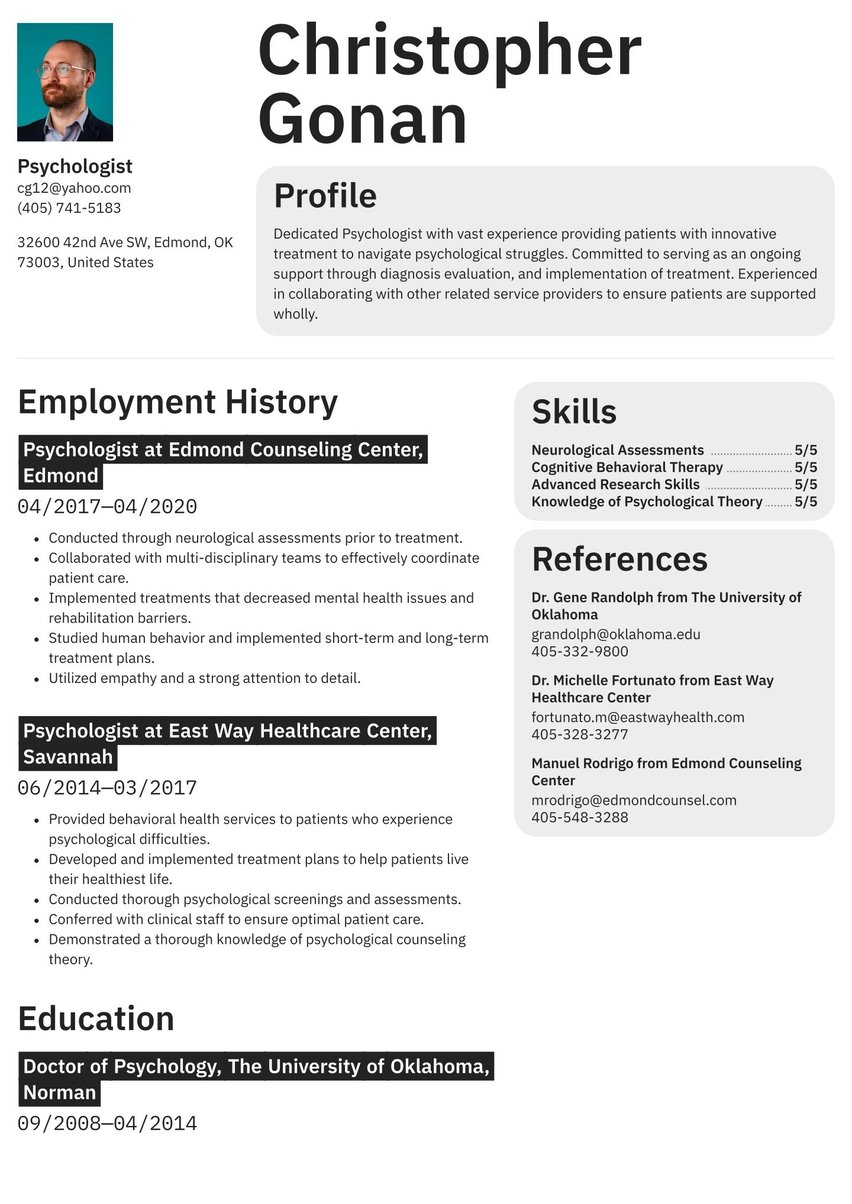Passionate and dynamic Medical professional with a commitment to serving others through best practices and superior care. Adept in planning and implementing appropriate and powerful patient care plans, leading to optimal health and wellness.
04/2017 - 07/2021, Lead Medical Assistant, JHR Healthcare, New York
- Prepared exam rooms and set up instruments and equipment according to protocol.
- Documented patient medical histories, complaints, and all patient-related communications.
- Provided assistance with examinations, procedures and treatments.
- Performed diagnostic tests including eye exams, EKG, Pulse Ox, and throat/nasal swabs
- Maintained HIPAA at all times.
09/2013 - 03/2017, Medical Assistant , Bellevue Health System, New York
- Verified patient information and recorded medical history and the purpose of the visit.
- Maintained complete records by recording patient examination, treatment, and test results.
- Sanitized exam rooms and instruments before and after visits.
- Assisted healthcare providers with medical treatments, procedures, and exams.
09/2008 - 05/2012, Bachelor of Science in Biology , Manhattan College, New York
09/2004 - 06/2008, High School Diploma, Eleanor Roosevelt High School, New York
- Graduated with Honors.
- English
- Spanish
- Ability to Work Under Pressure
- Ability to Work in a Team
- Honest and Reliable
- Advanced Medical Knowledge
- Patient Care and Support
- Electronic Medical Record (EMR) Systems
A great medical resume addresses the vital needs of hiring managers and has them reaching out to schedule an interview. Give your job search a healthy boost with the perfect resume
Medical resume examples by experience level
With writing guides and resume examples for 300+ professions, Resume.io has the tools you need to create a resume from scratch or give that existing one its annual check-up. This guide, along with the corresponding medical resume example will cover the following topics:
- What do medical professionals do?
- How to write a medical resume (tips and tricks)
- The best format for a medical resume
- Advice on each section of your resume (summary, work history, education, skills)
- Professional resume layout and design hints.
What do medical professionals do?
Broadly speaking, medical professionals assist patients in aspects of their health and wellness or conduct research into disease and health. They may be doctors, dentists, nurses, therapists or any number of healthcare specialists such as phlebotomists, physicians’ assistants or X-ray, CT or MRI technicians.
Medical professionals may work in hospitals, group practices, single-doctor offices or labs. They may specialize in the diagnosis, study and healing of one part of the body or disease, or focus on overall health.
There are more than 135 specialties that physicians can pursue, according to the Association of American Medical Colleges (AAMC). The Mayo Clinic lists more than 40 jobs for healthcare professionals who are not doctors or nurses.
Medical job market and outlook
The medical profession is a great place to be if you’re looking for opportunity. The pandemic has placed the healthcare profession on center stage. Shortages of nurses and doctors in some areas of the United States are compounded by the stress of coping with COVID patients and overloaded emergency and intensive care units.
The AAMC reports an expected shortfall of up to 139,000 physicians by 2033. That number is based on the increased care needed in an aging population and the number of doctors approaching retirement age.
The demand for nurses is also outstripping the number of qualified workers. California, Texas, New Jersey, South Carolina and Alaska are all predicted to have shortages of nurses by 2030, Nurse Journal reports.
Other healthcare workers will also be in high demand. The U.S. Bureau of Labor Statistics estimates a 15% leap in the need for all occupations in this field.
Here are the highest paying jobs for physicians and non-physicians in the medical field.
| Physician | Salary | Non-physician | Salary |
|---|---|---|---|
| Anesthesiologist | $271,440 | Pharmacist | $126,720 |
| Surgeon | $251,650 | Nurse Anesthetists, Nurse Midwives, and Nurse Practitioners | $117,670 |
| Obstetricians and gynecologists | $239,120 | Physician assistant | $115,390 |
How to write a medical professional resume
Before you jump into creating your medical professional resume, you need to know what to include. Your CV should contain the following sections:
- The resume header
- The resume summary (aka profile or personal statement)
- The employment history section
- The resume skills section
- The education section
A resume is a living document that requires personalization. For each job listing, research the hospital, clinic or practice you are applying to. Find out about the doctors, nurses and type of patients they see. The extra time you take to do this will help you develop a message that speaks directly to your prospective employers. It will also give you insight into what skills and attributes you should focus on in each section.
If you can, learn the name of the hiring manager and your prospective boss. Who knows? Maybe you went to the same school or have another connection that will give you an edge in getting that interview you desire.
A great medical resume uses consistent messaging, tone and style. Follow these guidelines to make the most of your CV:
- Write as though you are addressing the healthcare provider you wish to work for.
- Pay attention to creating a polished visual first impression with a resume template that has a creative edge without distracting from your message.
- Optimize by including important keywords and phrases to target the ATS algorithms.
Get into the hands of a human
Before a person ever sees your medical resume, it is being judged. Applicant Tracking Systems ease the burden on human resources departments by scanning and sorting resumes, but they may filter out your document if it is not formatted correctly.
Your best bet for passing through the ATS is an analysis of each job listing. Highlight keywords and phrases and insert them into appropriate spots in your resume. Make sure your text still sounds natural and that you don’t overdo it by repeating phrases too often.
Choosing the best resume format for a medical professional
In keeping with our advice on ATS software, we recommend the reverse chronological resume format. This makes your life easier when the scanning software places your information into document cells since the ATS will most likely use this format. Recruiters also prefer this style because they can easily see where you are now.
While other resume formats like the functional or hybrid structures exist, they are generally unsuitable for medical professionals who need to show previous experience in the field in order to be considered for many positions.
If you are applying to an entry level position such as a medical receptionist or a job in a nursing home, you may consider the hybrid model which begins with a “Skills” or “Experience” section followed by a shorter “Employment History” where you can list positions that show transferable skills.
Resume summary example: your bedside manner
Most medical professionals work with patients as well as colleagues and superiors. Dealing with stressful situations or patients who are worried or in pain requires excellent people skills. The summary section of your medical resume is the place to show off that ability.
This section, also known as a profile, provides 3-4 sentences to introduce your career and describe your professional philosophy and demeanor. Write a sentence that summarizes your career, including one or two positive words to describe yourself. Then, choose a highlight that illustrates your talents and tells employers what you can contribute to their workplace. If you have space, add something a little more personal such as why you entered the field.
Looking for more inspiration for this free-form section? Try one of our related medical resume samples including our nurse or doctor resume examples or our dentist resume sample. We also offer a pharmacist resume example or a physician assistant resume example.
You can find a resume example for your summary section below.
Passionate and dynamic Medical professional with a commitment to serving others through best practices and superior care. Adept in planning and implementing appropriate and powerful patient care plans, leading to optimal health and wellness.
Employment history sample: a robust career
In terse, bullet-pointed items, the employment history section of your medical professional resume tells the story of your career successes. Note that we said “career successes.” This is not a listing of every patient you have ever had or X-ray you have taken. It is another chance to show employers why they should hire you.
You accomplish this by thinking in terms of achievements instead of tasks. Did you diagnose a rare disease? Have you streamlined the nursing station protocol? Are you adept at putting nervous patients at ease? Use each bullet point to describe a success that focuses on your prospective employer’s needs, making sure to quantify your achievements with numbers and statistics.
Start each bullet item with a strong action word. Here are some good options:
- Diagnosed
- Nursed
- Administered
- Cured
- Examined
- Reassured
- Soothed
- Advocated
Below you will find an adaptable employment history resume sample.
- Prepared exam rooms and set up instruments and equipment according to protocol.
- Documented patient medical histories, complaints, and all patient-related communications.
- Provided assistance with examinations, procedures and treatments.
- Performed diagnostic tests including eye exams, EKG, Pulse Ox, and throat/nasal swabs
- Maintained HIPAA at all times.
CV skills example: finding your strength(s)
In the skills section of your medical CV, you need to take a look at who you are as a professional and diagnose your top skills. Then, make sure they mesh with the job listing to give you a better chance of passing through the ATS filter.
Medical professionals need a strong blend of the hard skills of scientific knowledge and the soft skills that allow them to listen carefully to patients and colleagues and communicate important health information. Aim for a blend of these two types of abilities as you compile this CV section.
The idea behind a skills section is to give recruiters a quick idea of whether you have the skills they find desirable and to give them an idea of what you believe are the most important factors for performing your job.
Below you will find a skills section resume example.
- Ability to Work Under Pressure
- Ability to Work in a Team
- Honest and Reliable
- Advanced Medical Knowledge
- Patient Care and Support
- Electronic Medical Record (EMR) Systems
Medical education resume example
Doctors need more than 10 years of schooling, internships and residency, and many other medical professions require specialized degrees, master’s degrees or certifications. Your education section is the place to list all of them. If you are recently out of school and have a stellar GPA, go ahead and add that. Otherwise, your work experience speaks for itself. If you’ve completed an advanced degree, there’s no need to include your high school education on your resume.
If you have published papers, earned awards or are an active member of a professional organization, you may list that here or space allowing in your 1-2 page resume, create a separate section to add these professional achievements.
Below you will find an education section resume sample as a formatting guide.
- Bachelor of Science in Biology, Manhattan College, New York
- Sep, 2008 - May, 2012
- High School Diploma, Eleanor Roosevelt High School, New York
- Sep, 2004 - June, 2008
Resume layout and design: confident presentation
You need to appear confident, trustworthy and professional and so does your medical resume. That first impression is important to your relationship with your patients and so is the first impression you present to recruiters. How do you convey those qualities in your resume’s layout and design?
You want a reader-friendly, eye-catching design that steers clear of gimmicks. Your contact information should stand out without veering into the flowery because you want recruiters to be able to reach you the second they decide you’re interview-worthy.
Since the layout and design speaks volumes about you before the hiring manager reads a word on the page, you may consider using a resume template to avoid leaving your formatting to change. These professionally-designed layouts allow you to add in your own information which customizes options like color and section headings.
- Keep your margins to the standard width of 1-inch
- Balance the amount of white space to text
- Create a strong header to highlight your name and contact information
- Go overboard with icons, graphics or unnecessary design elements
- Keep your color palette reserved and professional
- Submit your resume without first proofreading for spelling and grammar mistakes
Key takeaways for a medical professional resume
- Retirement, an aging population and the stress of the pandemic have combined to create a great need for medical professionals.
- Your resume should convey an air of confident professionalism and communication skills.
- Target each of your medical resumes to the specific job for the best job-hunting results.
- Take a look at our medical resume sample for more ideas on how to create an eye-catching and professional header area.


.jpg)

.jpg)












